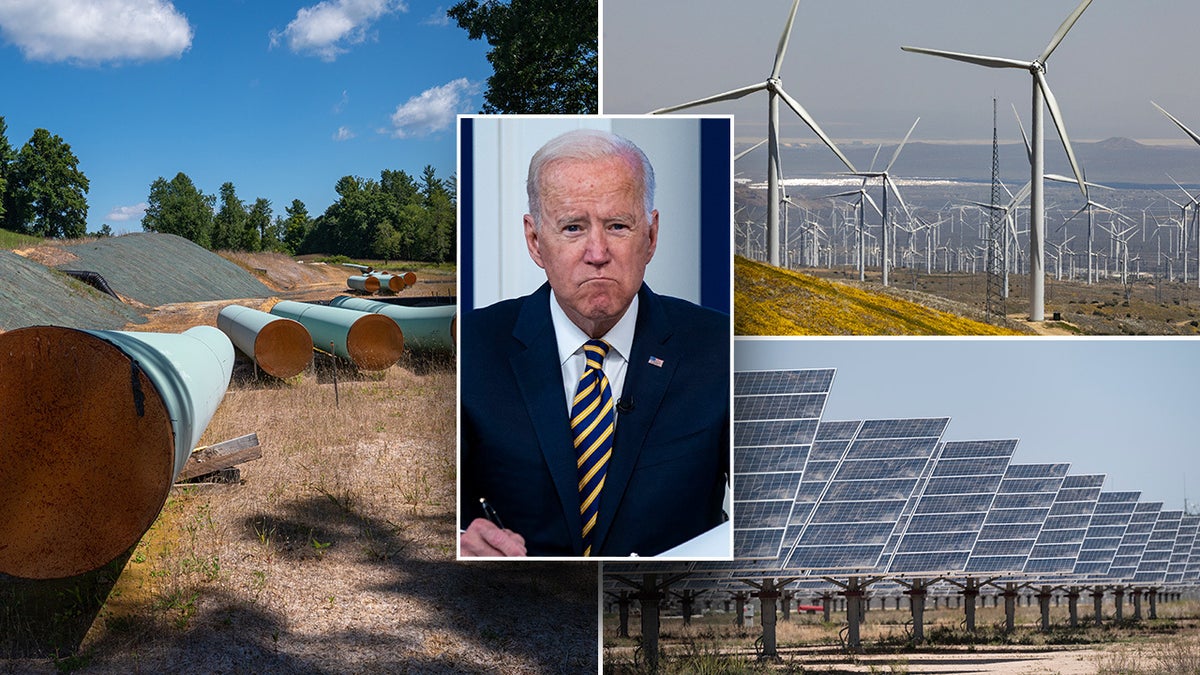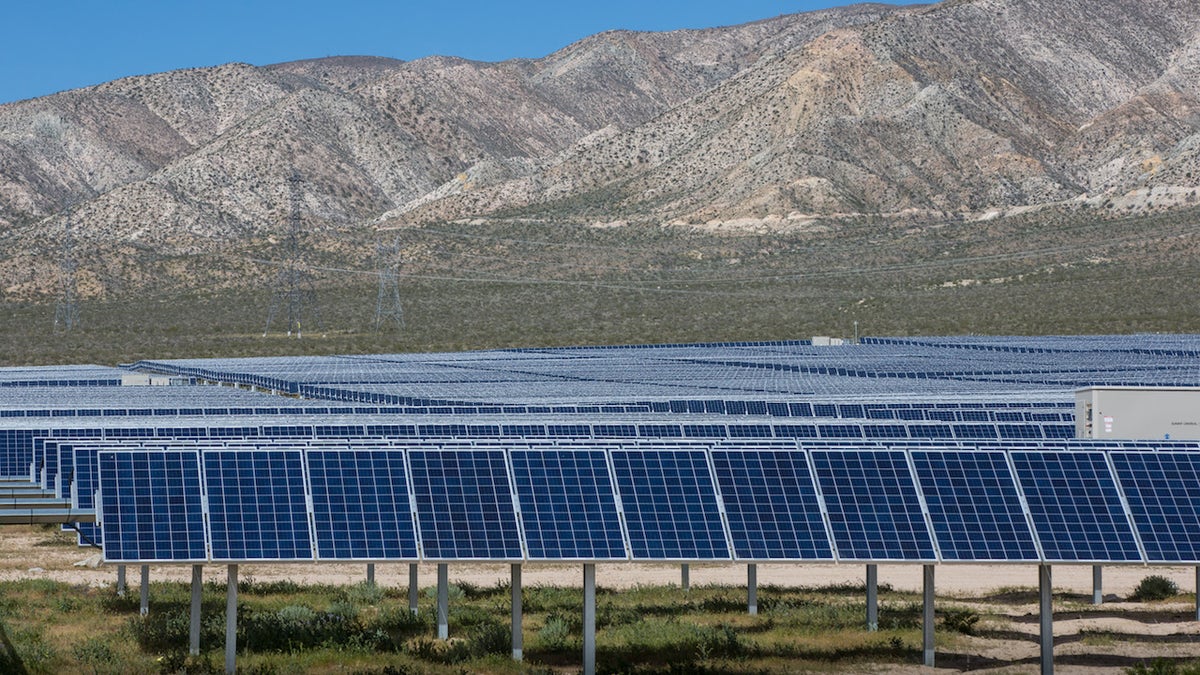This is a slap in the face to the oil and gas industry: Phil Flynn
Phil Flynn and Tim Dallinger discuss the Biden administration cutting millions of acres from oil lease on ‘The Story.’
The Biden administration quietly issued a 59-page report outlining the current scope of federal energy-related subsidies revealed that the renewable energy sector enjoys significantly larger taxpayer backing than the fossil fuel industry.
The report — authored by the Department of Energy's Energy Information Administration (EIA) and published in August — represents the first of its kind since 2018. The EIA analyzed data from 2016 through 2022, and determined that, during that time period, the federal government doled out $183.3 billion in direct and mainly indirect taxpayer subsidies, more than half of which came over the last three years.
"For years Democrats have claimed technologies like solar energy are cheaper than coal, oil, natural gas, and nuclear. This report makes clear that solar is largely dependent on heavy subsidies with taxpayer dollars," Senate Energy and Natural Resources Committee Ranking Member John Barrasso, R-Wyo., told Fox News Digital.
In early 2021, Barrasso and Energy and Natural Resources Committee Chairman Joe Manchin, D-W.Va., requested the analysis to help inform congressional policymaking in a letter to then-EIA Acting Administrator Stephen Nalley. The pair argued such a report would be particularly relevant "as Congress considers calls for a greater level of federal involvement in the nation’s energy systems and markets."

Fossil fuel industry received $24.5 billion in subsidies last year while renewable energy sources received a staggering $83.8 billion in subsidies, the report showed. (Getty Images)
"Under the Biden Administration, American families are paying too much for energy as it is," the Wyoming Republican continued. "They shouldn’t have to fork over their hard-earned money to support liberal special interests. Solar should be competing for sales in the marketplace, not for subsidies in Washington."
According to the EIA report, while renewable energy sources like wind and solar power account for about 21% of domestic electricity production, such sources received a staggering $83.8 billion in subsidies, by far the largest share compared to any other category.
Energy end use subsidies, like energy efficiency- and conservation-related tax provisions, represented the next-largest slice of energy sector federal subsidies after renewable power, according to the EIA report. End use sources received $64.8 billion in subsidies, equivalent of 35% of total energy-related subsidies doled out by the federal government.
While renewable and end use sources accounted for more than 80% of total energy industry subsides, fossil fuel sources — namely natural gas, petroleum and oil, which account for more than 60% of electricity production and the vast majority of transportation energy — benefited from $24.5 billion, or 13%, in subsidies.
Nuclear power, which produces another 18% of U.S. electricity, received $2.9 billion in subsidies during the analyzed timeframe, the equivalent of 2% of total subsidies awarded.

The Barren Ridge solar panel array is pictured near Mojave, California. (George Rose/Getty Images)
The reports findings suggest far more taxpayer money is being spent per energy unit produced by green energy sources than for the equivalent energy until produced by fossil fuel energy.
For example, natural gas power generated 44.9 quadrillion British thermal units in 2022, 45% of total energy generated economywide, but received $2.3 billion in taxpayer subsidies that year. That means for every million British thermal units (MMBtu) produced by natural gas, the industry received about $0.05.
By comparison, in 2022, the solar industry generated about 0.6 quadrillion British thermal units, less than 1% of total energy produced economywide in the U.S., but received $7.5 billion in subsidies. That means the solar power industry received $11.9 per MMBtu generated last year.
BIDEN'S ENERGY SECRETARY PUMPS THE BRAKES ON RAPID GREEN ENERGY TRANSITION: 'WE NEED BOTH'
The results are as pronounced when comparing coal power which received $873 million in subsidies last year while generating 18 times the amount of power as solar energy.
However, President Biden, his administration and prominent Democratic lawmakers have repeatedly called for an end to fossil fuel subsidies, arguing they distort the market and unfairly disadvantage alternative energy sources.

A pump jack operates in front of a drilling rig near Carlsbad, New Mexico. (REUTERS/Nick Oxford/File Photo)
"The President is committed to ending tens of billions of dollars of federal tax subsidies for oil and gas companies. Even as they benefit from billions of dollars in special tax breaks, oil companies have failed to invest in production," the White House earlier this year.
The statement came after Biden unveiled his proposed fiscal year 2024 budget which proposed to strip $31 billion worth of "special tax treatment" for oil and gas company investments in addition to other fossil fuel tax preferences over the next several years.
CLICK HERE TO GET THE FOX NEWS APP
"We are subsidizing the danger. As we’ll hear today, the United States subsidizes the fossil fuel industry with taxpayer dollars," Senate Budget Committee Chairman Sheldon Whitehouse, D-R.I., said during a hearing in May. "In the United States, by some estimates taxpayers pay about $20 billion dollars every year to the fossil fuel industry. What do we get for that? Economists generally agree: not much."
"But the really big subsidy is the license to pollute for free," he continued. "The IMF calls this global free pass an "implicit" fossil fuel subsidy. Economists call it an 'unpriced externality.' Behind these benign-sounding phrases is a lot of harm."















































